MercoPress. South Atlantic News Agency
Environment
-
Wednesday, February 1st 2023 - 09:51 UTC
Lake Titicaca downspout reaching historical levels
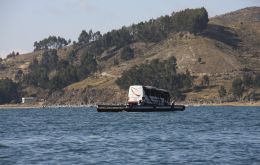
Bolivian authorities Tuesday reported that due to poor rainfalls, the water levels of Lake Titicaca, on the border with Peru in the middle of the Andes, had dropped 97 centimeters.
-
Monday, January 30th 2023 - 20:11 UTC
Germany pledges some € 200 million to Brazil's ambitious environmental actions

Germany's Minister of Economic Cooperation and Development Svenja Schulze Monday announced in Brasilia the release of about € 200 million to be committed to environmental actions.
-
Monday, January 30th 2023 - 19:58 UTC
Supplies and staff arrive at Uruguay's Artigas base in Antarctica

After departing from Montevideo on Jan. 16, Uruguayan Navy's logistics vessel ROU 04 “General Artigas” has arrived in Antarctica as part of the Antarkos 2022-2023 campaign to deliver supplies to the Artigas Scientific Base.
-
Monday, January 30th 2023 - 17:10 UTC
Cyanobacteria detected in Uruguayan and Argentine resorts
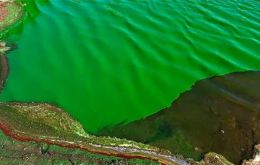
Uruguayan authorities detected once again the presence of cyanobacteria in the waters of the Queguay river (a tributary to the Uruguay River), east of Guichón, in the department (province) of Paysandú.
-
Saturday, January 28th 2023 - 10:10 UTC
Degradation also harmful to Amazon rainforest, study shows
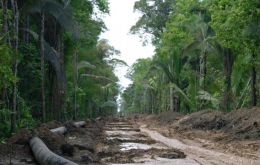
One-third of the Amazon rainforest has been degraded by a combination of human activity and drought, according to a scientific report carried this week by the journal Science. The study released on Thursday yielded results much higher than previously thought and underlined that, in addition to deforestation, degradation can be just as harmful.
-
Wednesday, January 25th 2023 - 18:51 UTC
Forest fire next to Uruguayan city of Piriápolis
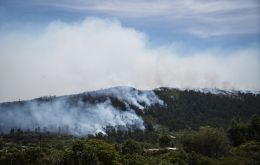
A forest fire broke out in the wee hours of Wednesday in the Uruguayan beach resort of Piriápolis, in the department of Maldonado. Firefighters were swiftly deployed to the Cerro del Toro area to keep the flames from reaching Cerro Pan de Azúcar.
-
Wednesday, January 25th 2023 - 09:28 UTC
Huge iceberg size of Greater London, breaks off from Brunt Ice Shelf, location of BAS Halley Research Station

A huge iceberg, some 1550 km², almost the size of Greater London, has broken off the 150m thick Brunt Ice Shelf. It calved after cracks that have been developing naturally over the last few years extended across the entire ice shelf, causing the new iceberg to break free. This occurred on Sunday 22 January between 19.00 and 20.00 UTC during a spring tide.
-
Tuesday, January 24th 2023 - 21:39 UTC
Former Brazilian Navy carrier poses environmental threat

Brazilian Navy's former flagship, the French-built aircraft carrier Sao Paulo, is somewhere in the middle of the Atlantic Ocean with no port to welcome her after being decommissioned. The old hull, full of asbestos, paint, and other toxic waste, has been anchored 315 kilometers off the Brazilian coast, to prevent drifting, but the possibility that it might sink has not been ruled out. It would be a major environmental disaster, it was reported.
-
Tuesday, January 24th 2023 - 08:16 UTC
New iceberg calved into Antarctica's Weddel Sea
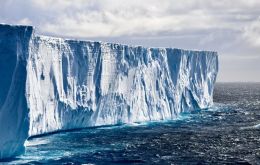
A 1,550 km2 iceberg broke off from Antarctica's Brunt Ice Shelf, British scientists reported Monday. “The 1,550-square-kilometer block of ice broke off the ice shelf between 7 pm and 8 pm Sunday after a strong tide widened an existing crack in the ice shelf,” the British Antarctic Survey (BAS) explained.
-
Saturday, January 21st 2023 - 10:22 UTC
UK cost of living: King Charles wants profits from his wind farm be distributed among the public

King Charles III has requested that the annual profits from his wind farm deal be directed towards helping the cost of living crisis in the UK rather than support the royal family, the Crown Estate confirmed this week.
